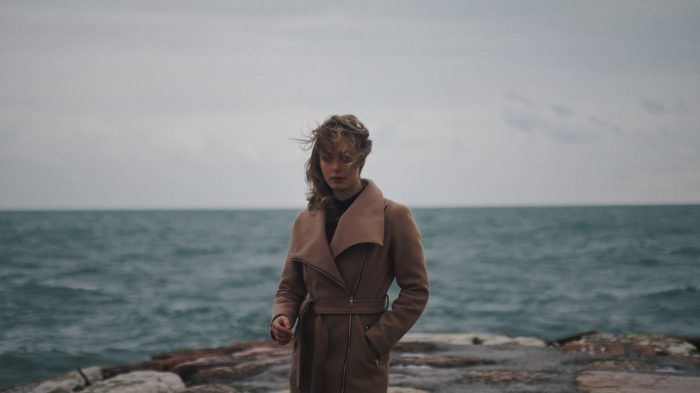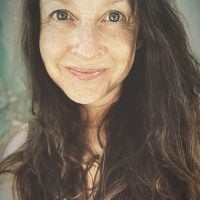Our first experience of a power greater than ourselves, God, begins in the womb—followed by our caregivers and the atmosphere in which our nervous systems develop.
We are merged with God in every way before we are born, then we rely on human beings for every single need we have.
We bathe in their consciousness—from their emotions, tensions, energetic dynamics, and conscious and unconscious attitudes toward us, themselves, and each other. Then, we add in how we learn about God from our families as we observe how they live it.
As adults, we unconsciously tend to project these parental wounds onto God, while projecting God/dess onto each other or taking on these archetypal identities ourselves.
We are God or we are looking for God in others.
This dynamic lives in the heart of our codependent patterns.
The root of this stems both from our early development and experiences, as well as from living in a modern culture that prioritizes technology (and money) over the natural world…not to mention a hefty history of religious violence our ancestors bore witness to.
This has left us rootless, disconnected from the earth, from primal source itself.
We can spend our lives diving into tons of spiritual practice while remaining in a feeling of disconnection and wonder if something is wrong with us. We have been conditioned this way because we are mostly rootless, not drawing on primal source, the earth, our ancestors, or other life around us as a way of coming into an intimate, gnostic relationship with God/Sophia. A relationship that heals us from the inside out.
It’s this spiritual wound that is both a symptom of collective trauma and our own individual trauma that our codependent patterns stem from, along with all the other things we are already aware of.
This is the one we don’t talk about nearly enough, but it is so vital to our healing, in order to come into right relationship with interdependence and a sacred reciprocity with all of life.
A spiritual disconnection of this magnitude is a major loss, as well as the source of deep heartbreak that lives in the middle of so much of what we have all survived in our lives.
We end up trying to fill this spiritual void with substances, other people, shopping, hoarding, eating, social media, work, and so on.
We are looking for this spiritual connection in a cultural world that is basically devoid of it.
It’s not surprising that in my work with clients, when we start to explore their connection to God, there is a heaviness that comes over the moment, along with a contraction and an expression of distrust.
A distrust in God, Love, and even Life itself.
It makes sense right?
This is such rich, fertile ground.
So many more humans feel this way than not, but we aren’t really talking about it so the patriarchal trauma continues to live on. So much so that God is even a bad word, so we use 10 other words in its place.
This is a deeply intimate experience, one that is unique for each of us, yet the profound relationship we can have with a higher power, God, Sophia, through the earth, our bodies, our hearts, through divine Life, and connecting with divine Light is universal to all of us.
We are all wired for this gorgeous experience.
When we begin to consciously look at this place within us, one that is flagged for us so benevolently by Chiron himself, we ignite a miraculous momentum of healing grace within our psyches.
These parental wounds start to unwind as we reclaim our rightful relationship to the archetypal divine Mother and Father. We come to birth ourselves as the divine children of this loving Life that we were meant to be.
It liberates us from our codependent patterns because we are connected, like trees, root, trunk, branches, leaves, and fruits, in right relationship with Love, Light, and Life—then other humans can be humans and we can be guided in integrity with love to heal the way our grief had us turn away from that which is the very Source of all our lives.
More love.
Not less.
~











Read 0 comments and reply